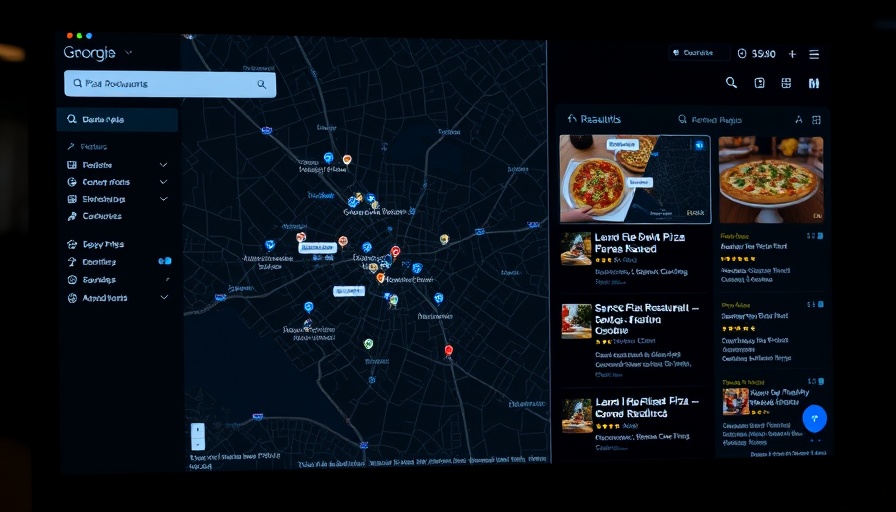
Understanding Local SEO: A Critical Component for Success
In today’s digital marketplace, mastering local SEO is crucial for businesses that wish to attract customers within their geographical area. Local search optimization not only affects how users discover businesses but also is a driving factor behind offline purchases. Research shows that 76% of people who search for something nearby visit a business within a day, highlighting the importance of effectively implementing local SEO strategies.
The Core Elements of Local SEO
Local SEO is built upon several ranking factors that determine how well a business’s online presence can connect with local searchers. Key elements include:
- Google My Business Optimization: Claiming and optimizing your Google My Business (GMB) profile is crucial. It acts as a virtual storefront allowing users to find vital information at a glance, such as opening hours, contact information, and customer reviews.
- Local Citations: Consistency is key when it comes to local citations or mentions of a business's name, address, and phone number across various websites. Ensuring these details are accurate on platforms like Yelp, Yellow Pages, and local blogs helps improve visibility.
- Online Reviews: Customer reviews are an essential trust factor for potential customers. Active engagement with reviews—both positive and negative—not only enhances reputation but is also favored by search algorithms.
The Role of Keywords in Local SEO Optimization
Effective keyword research is foundational to local SEO. Businesses must use specific, location-based keywords to promote services effectively. For instance, rather than simply targeting “pizza,” a local pizzeria may choose “best pizza in [city name].” This targeting increases the chances of appearing in relevant search results when users are looking for nearby dining options.
Future Trends: Local SEO in an Evolving Digital Landscape
With rapid advancements in technology, local SEO continues to evolve, heavily influenced by changing consumer behaviors and technological trends. Voice search optimization is emerging as a key player, prompting businesses to adapt their SEO strategies accordingly to cater to phrases and sentences, rather than just keywords. Additionally, the integration of AI in digital marketing is set to reshape how consumers search for local businesses.
Challenges and Best Practices in Local SEO
While implementing local SEO strategies, businesses may encounter challenges such as managing reviews or maintaining up-to-date information across various platforms. To overcome these barriers, it’s advisable to:
- Stay up-to-date with the latest SEO updates and algorithm changes.
- Monitor local competitors to identify successful strategies.
- Employ tools for tracking and managing citations to simplify the process.
Conclusion: The Value of Local SEO Practices
By investing time and resources into local SEO, businesses not only enhance their visibility online but also drive foot traffic and conversions. The strategies discussed are integral to establishing a strong online presence that resonates with local customers. To maximize these efforts, continuous learning about digital marketing tools and staying informed on trends such as mobile marketing strategies and evolving Google algorithms is essential.
To effectively implement local SEO strategies, businesses must also monitor their performance analytics and consumer engagement continuously, ensuring they remain competitive in a dynamic market. This calculated approach is key to thriving in an increasingly digital and local-focused economy.
 Add Row
Add Row  Add
Add 




Write A Comment